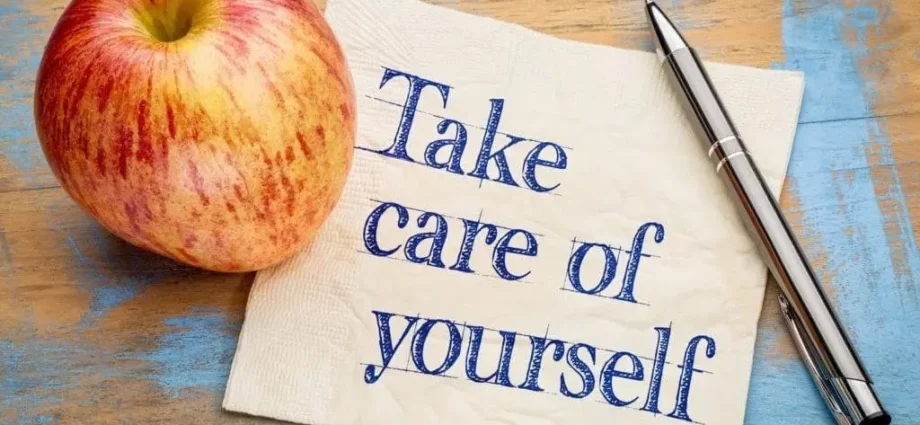What is the difference between caring and “doing good”? Where is the line between help and care? And why does the latter lead to negative consequences? Our heroes – elderly parents and their adult son – spoke about their experience and the life lessons they learned from it.
The story of one family
Sergey, 43 years old: “In the spring, during the quarantine period, my parents were at home. They are at risk by age and health, so my wife and I asked them not to go out, to take care of themselves. Probably, then for the first time I realized how terrible it would be for me to lose both my mother and father. And what will happen to each of them if the other does not?
It seemed to me that now our, my task is to protect them. I went for groceries and brought them, passing them through the door. Provided parents with respirators. We told them: “Don’t do anything, don’t go anywhere, we’ll do everything ourselves, just take care of yourself.”
But at some point I was afraid that the situation was getting out of control. My father’s blood pressure began to jump, and my mother suddenly fell at home, out of the blue. Both were in a sad mood, although they tried not to show it. They revived only when the quarantine was over and in the summer it was possible to return to normal life.
Sergey’s father, 72 years old: “Paying bills is already something of a ritual for me. For many years I have been taking meter readings myself, I myself go to the savings bank, I always know how much we have “dropped” this month for electricity and how much for water.
During self-isolation, the son took all these worries upon himself. And I realized that I was losing control of my life. Such a simple everyday action, it turns out, meant a lot to me. If I can’t even pay my bills myself, does that mean I’m getting old? And then I felt fear and helplessness.
Sergey’s mother, 70 years old: “I had no questions about what to do with myself. And there are always many things to do around the house, and I love to knit. The only thing missing was movement. I tried to walk around the apartment, but this is not at all like my usual daily forays – either to the store, or to a friend, or to the theater. Like everyone else, I gained weight. And when I started to leave the house, I felt that I was physically very handed over. Made me feel old…
The saddest thing is that we could not see our granddaughter. Usually I took her to classes, we talked, played, walked. In quarantine, I’m not just bored. I was worried about my uselessness. I liked that we help our son and daughter-in-law raise a child. It is always important to understand that you are contributing to the affairs of the family. Being just a consumer and waiting for the children to bring food is not for me. And I felt like I was weak, helpless. Even the body, probably, reacted to such a mood – I became dizzy, my health worsened.
Now we are following all safety measures, wearing masks and gloves, avoiding crowded places. But we definitely go out – both to the store and to take a walk with our granddaughter. That’s life. The one we like. And if we are excluded from it, then it will not bring us anything good.
Sergei: “During the second wave, I wanted to ask my parents to stay at home again. But I saw how they passed in the spring. We talked a lot – I realized how important it is for them to be active and feel that they are able to take care of themselves. I took a step back. Told them, “If you need help, I’m here.” And he stopped patronizing them like little ones. Actually, it made me feel better as well. I understand that they are not getting younger. But let things take their course. For now, I’m just glad that they are on their feet and in a cheerful mood.”
A fine line
Having crossed the line between help and guardianship, Sergey assigned the role of “children” to parents, taking on parental functions. Guardianship implies helplessness – not only physical, but also personal – of the one who becomes its object. These are vertical relationships. In them, one is endowed with the power to patronize, imposing his opinion on what is best, more correct and what is more necessary for another. And the second, along with physical helplessness (which can intensify in this role), ceases to be equal in communication.
Apparently, Sergey’s overprotectiveness was a manifestation of his anxiety associated with uncertainty and stress from life changes during the pandemic. He channeled his anxiety into action. But at the same time, guided by “good intentions”, he did not notice how he crossed the borders. This is how caring can turn into a dictatorship.
Having received the necessary control over their own lives and the opportunity to perform certain actions from the daily routine, having joined back into the life of the family as its active participants, grandparents regained their “adult” position, restoring equality in relationships.
Should you help your loved ones? Of course yes. But it is important to give an adult and reasonable person the right to determine what and when he needs help. And as long as the elderly parents of the hero remain capable, “of sound mind and sober memory”, they do not need guardianship, but respect and recognition.










